Pure Date - poetic computation
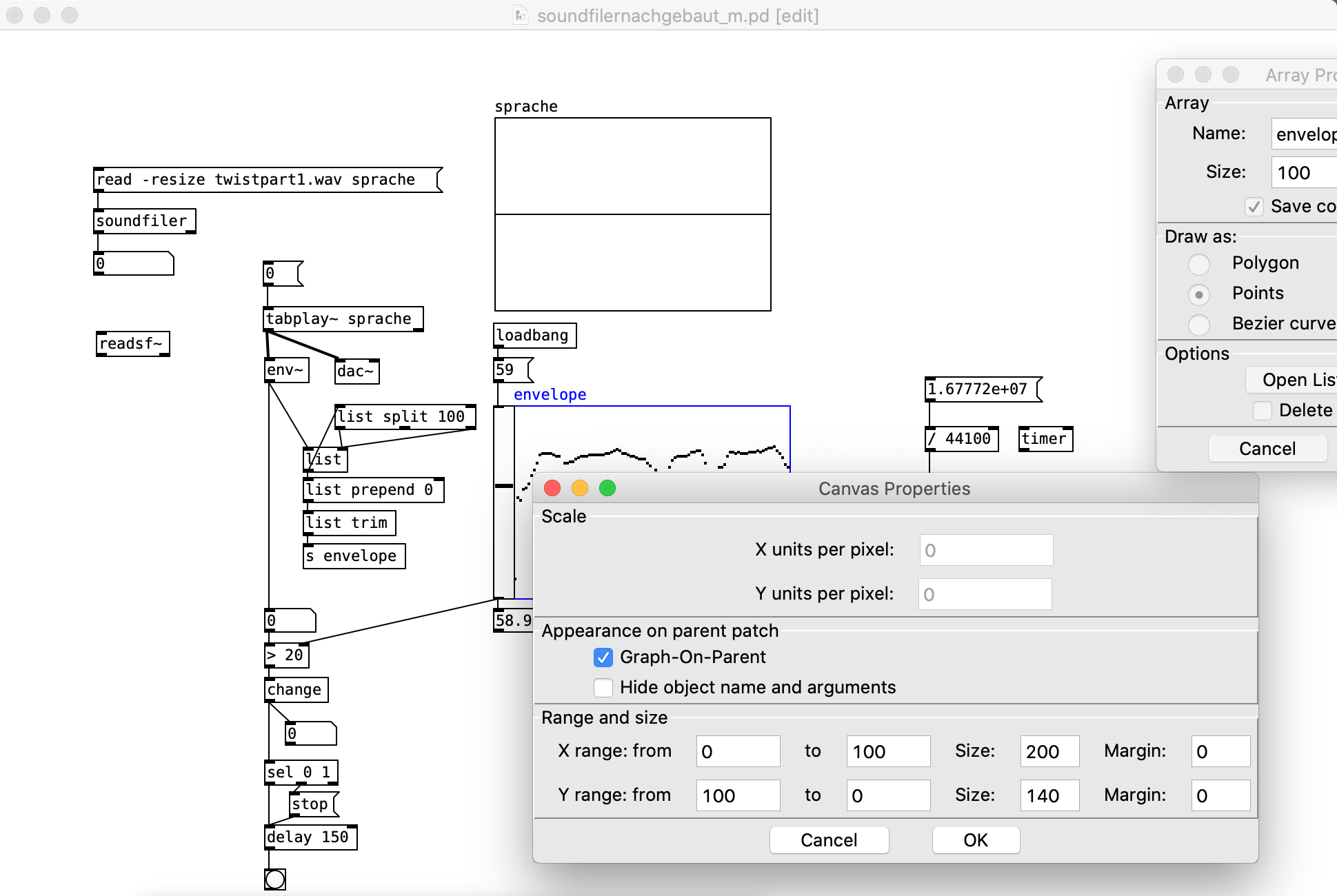

Konsultation
Durch die Konsultation fest gestellt das ich lieber mit tabread4 arbeiten sollte da tabplay zu basic ist und ich nicht genug kontrollieren kann (tabplay = eher für simple abspielen)
Wenn ich etwas 'gleichzeitig' machen will trigger float bang = trigger f b
envelope = Graph um Schwelle für Stille festzulegen und einzuordnen
y - range in meinen envelopes und graphs = 100-0
$1 in message box = locale variable
$1 in object box = 'abstraction' schreibt reference path through other patch
0 = nein = pause
delay 150 Millisekunden = so lang muss die Pause mindestens sein um als Pause erkannt zu werden
Das bang was unten dran hängt kann jetzt weiter verwendet werden; sprich es kann tabplay stoppen - kann an einen randomiser dran gehangen werden
Die Schwierigkeit kommt dann beim weiter laufen; anscheinend kann ich nicht einfach sagen 'stopp für 5 sekunden und mach weiter' sondern muss sagen ' mach HIER weiter' ?
sodass ich Zeit x Samplerate = zeit wo man weiter machen muss - versucht mit 'timer' Objekt aber nicht das richtige
ggf. mit metro?
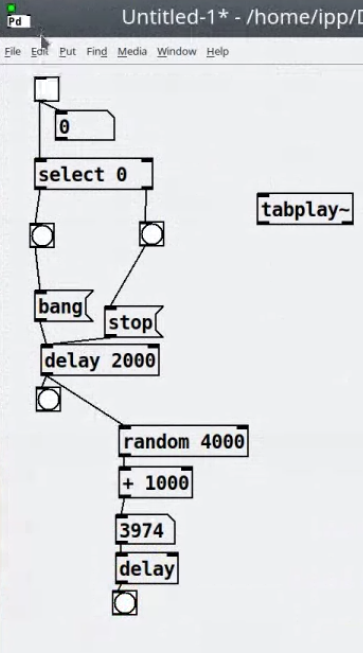
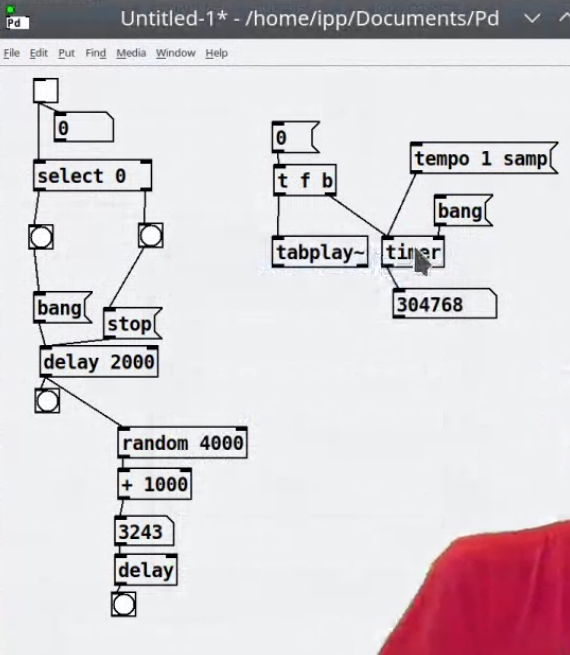
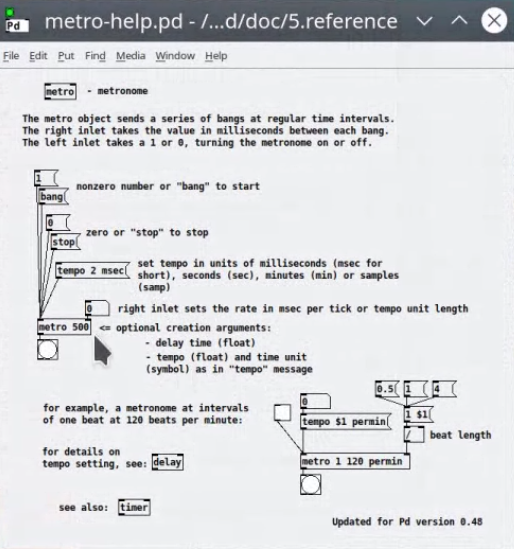
Outline what should happen:
(1) Poem plays
(2)
breaks are detected > by volume
are extended ( between 1-7 seconds) randomly
(3) poem keeps playing
(1) poem plays
(2) shifts in tempo are detected > by ?
are changed (slower, faster) randomly
(3) poem keeps playing
(1) poem plays
(2) emphasised words are detected > by pitch?
WORDS are detected??
are slightly re-pitched to put emphasis on select words
(3) poem keeps playing
Combine this patch that detects and visualises the spoken word pitch with tabread4 so that the soundfile will keep playing after randomised break is introduced!
In my tabread4 setup this 0 pauses the playback speed - the 0 of the cold inlet puts it back to zero/the beginning. So the 0 on the hot inlet to the phasor element is what I need to combine with a randomise object ?
'using random to start and stop sound file'
Figured out how to connect my tabread 4 patch with the 'soundfilernachgebaut' patch from Max : by connecting the tabread4 output before it goes into the dac to the envelope.
Although I did the same thing a few times a had toruble playing the file or it looked like the envelope was only playable by activating the original patch file but by re-copy-pasting I somehow avoided this problem and the patch is playable as seen.
I need the random object not to send me to different random points of the sound file but to randomise the delay.
I have to define the delay between 1- max.6 seconds of break
I tried adding the random object with delay at the end as Max suggested /started last session but isen't the phasor input the part where I start - stop and change the audio - so should my detected breaks that are randomised flow in there?
Mit dem 'envelope graph' kann ich hier die Stille einordnen.
But this also does not yet have the desired effect.
Looking at the 'random numbers' tutorial ; my metronome - the thing that sets the rhythm - are the detected breaks - so that is my input into the random object and my point of entry is the audio file - so the phasor?
The random object with delay gets it's input from the detection of the breaks and is suppose to send a message to the phasor object that plays the audio. But nothing is happening - maybe because not the random numbers need to be between 1-6 ( numbers between 0 and 6000 are spit out everytime a break is detected - see bang under envelope) but the delay needs to be defined by a number? .
I tried to integrate the sig; vd delay , delwrite combination from this tutorial but no sucess
To detect the tempo I should use a metronome object?
But how would the algorithm know if something is said 'faster' than normal? If it doesn't know what 'normal' is?
How could the metronome count the words in time?
Or the Syllables in time?
If PD only registers the spoken words as noise?
The same goes for a special emphasis: how can I detect them if they don't really vary from the overall pitch?
Is pitch even the right criteria to detect and change emphasis /intonation by? and how can I apply it to different words?
>> A metronome with a randomiser running for the entire duration of the poem and randomly sending out bangs that change the pitch?
What would my random control? : the pitch
What would control when the pitch is changed? : a randomised metronome
Problem: the pitch of the tabread4 played soundfile is slightly off..
SOLUTION: this was because I was running it at the wrong frequency- needs to be at 4800 sample rate for 48kHz!
Problem: the h slider that makes sense for changing the pitch is max set to 0.05 - but the random generator only works with higher numbers..? which would break the limit.
And the range I want to manipulate in would be even much much smaller!
This is playing with the pitch - then I would also have to connect this to randomise the moment it changes the pitch.
Randomly change the pitch or do you think changes in pitch could accurately be detected .. ?
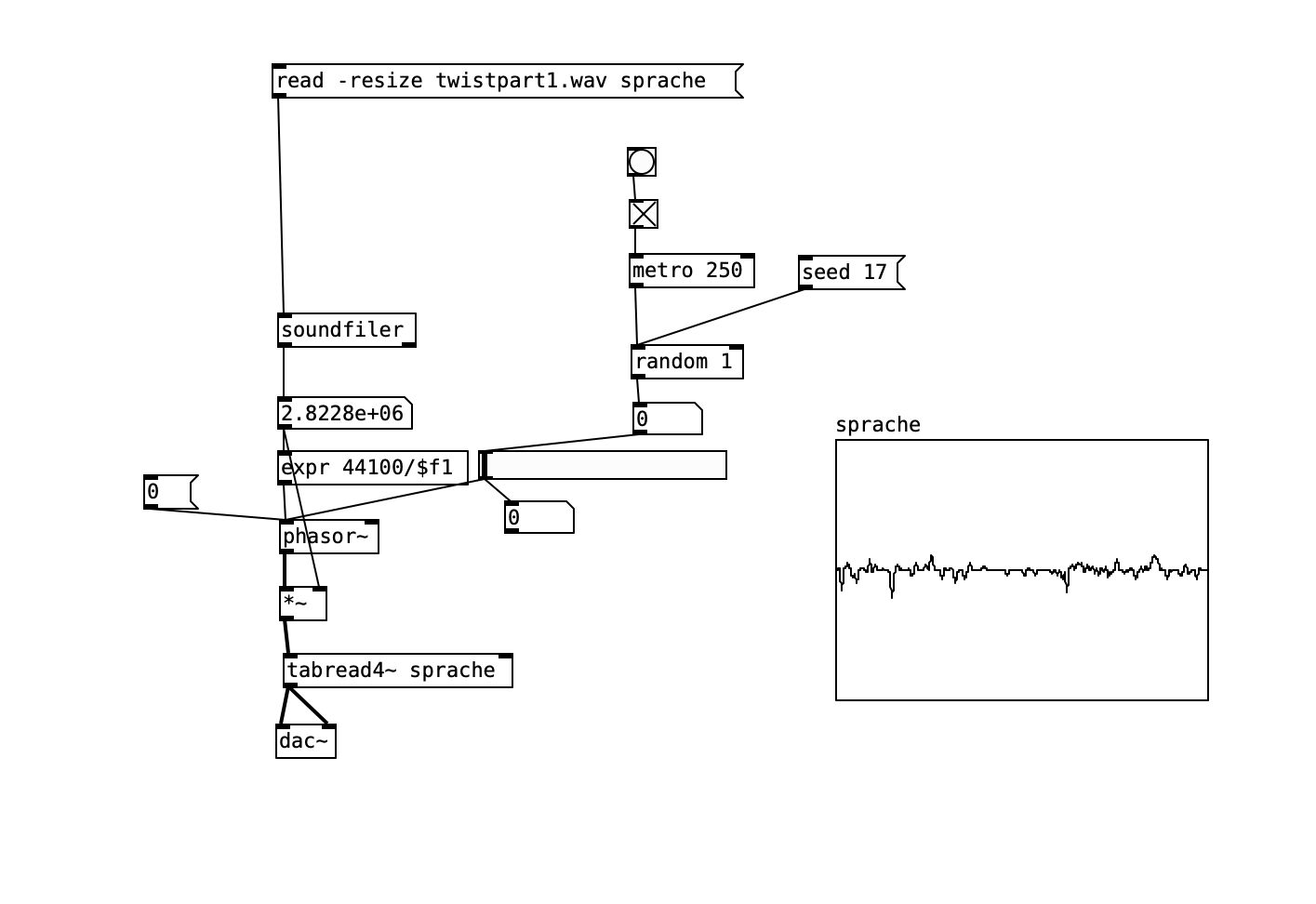
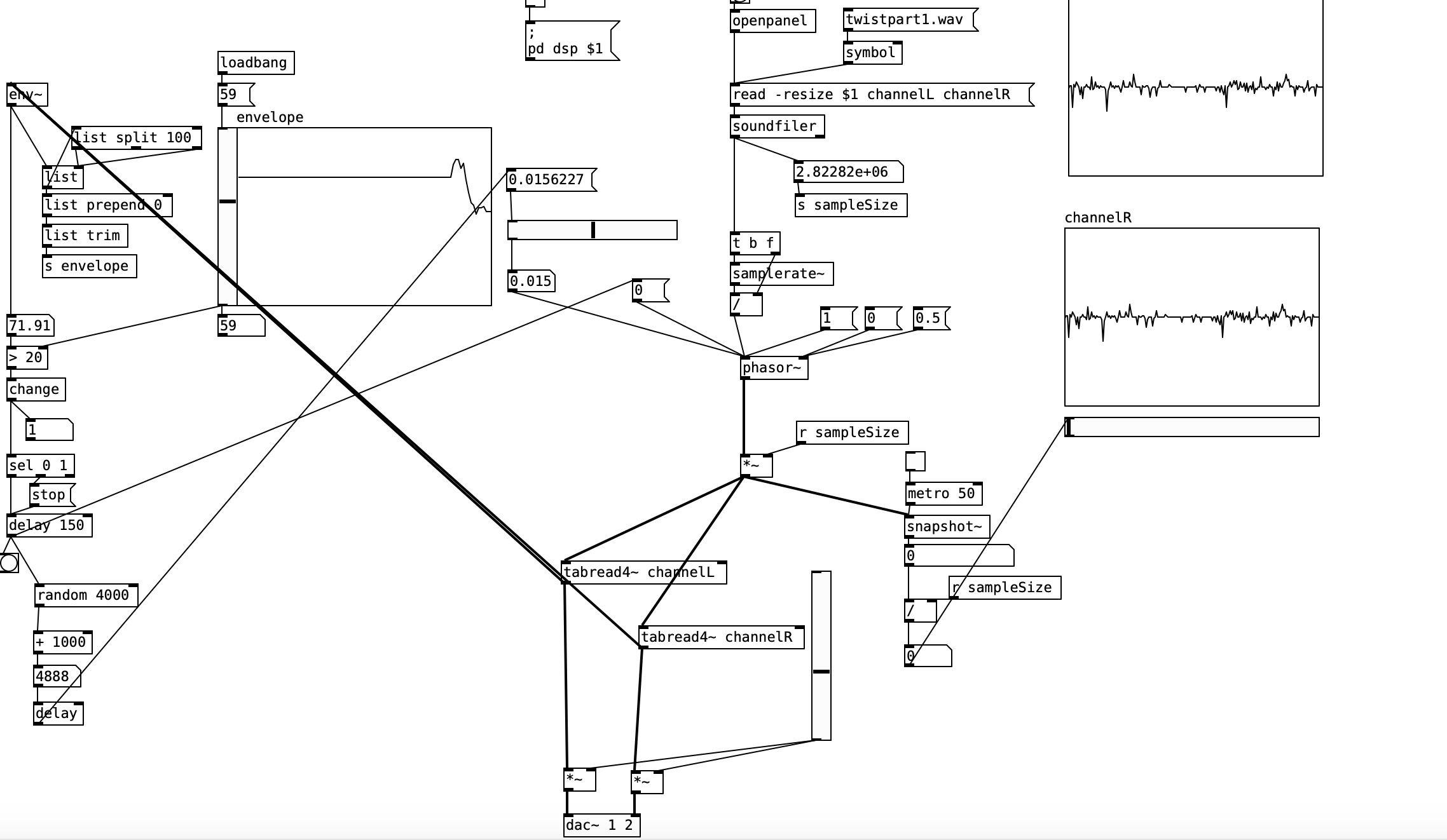
To detect the tempo I should use a metronome object?
But how would the algorithm know if something is said 'faster' than normal? If it doesn't know what 'normal' is?
How could the metronome count the words in time?
Or the Syllables in time?
If PD only registers the spoken words as noise?
The same goes for a special emphasis: how can I detect them if they don't really vary from the overall pitch?
Is pitch even the right criteria to detect and change emphasis /intonation by? and how can I apply it to different words?
>> A metronome with a randomiser running for the entire duration of the poem and randomly sending out bangs that change the pitch?
What would my random control? : the pitch
What would control when the pitch is changed? : a randomised metronome
Locate such extensions over > browse > downloading
The final working thing!!